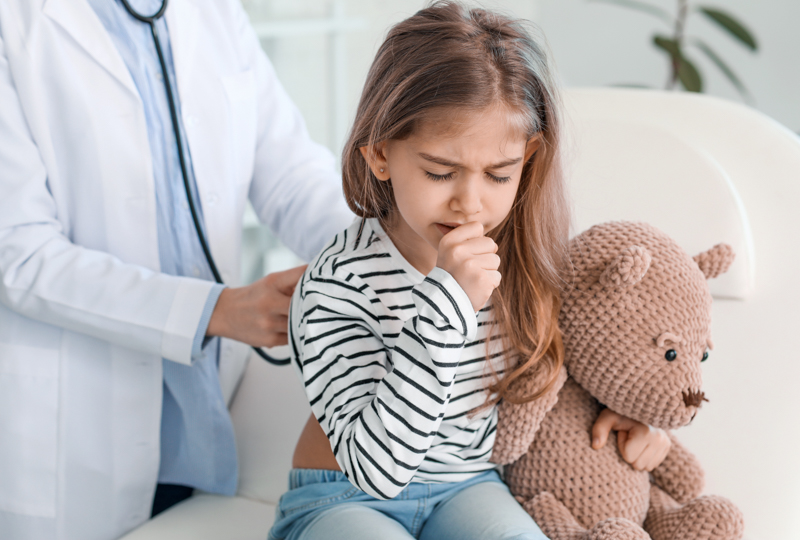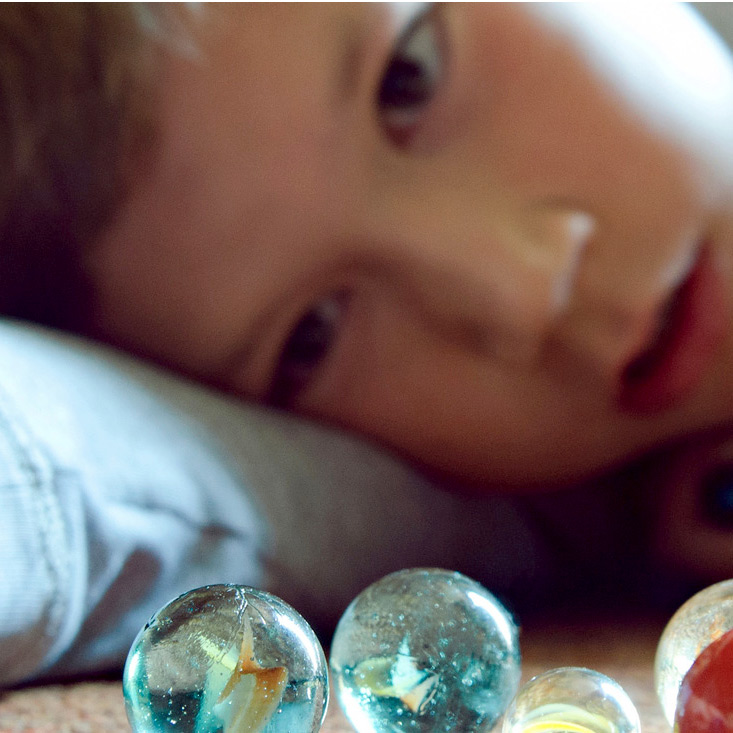When to see a specialist about your child’s cough.
Kids cough — it’s a common part of childhood. Most of the time, coughing is caused by a cold or the flu, allergies or other typical upper respiratory infections. Often, it’s nothing that can’t be treated at home with rest, hydration and time. But what if your child’s cough lingers or frequently returns? What if they’ve already been checked for pneumonia, bronchitis or bacterial infection and the cough just won’t go away?
“If a child starts to have a cough that is so persistent that it’s affecting their daily activities — their ability to run and play and go to school — and is just not responding to the standard therapies a pediatrician would recommend, it might be time to seek out a specialist,” said Dr. Michael G. O’Connor, a physician with Pediatric Pulmonary Medicine at Monroe Carell Jr. Children’s Hospital at Vanderbilt.
Here are some possible causes of persistent coughs in children that may require further evaluation by a specialist.
Asthma
“Untreated asthma can significantly impact a child’s quality of life.”
A chronic cough that worsens at night or with physical activity might signal asthma. This condition inflames and narrows the airways, causing persistent coughing, wheezing and shortness of breath.
“Untreated asthma can significantly impact a child’s quality of life, leading to missed school days and even hospital visits,” O’Connor said. “But with proper therapies, we can help children manage their symptoms effectively and prevent flare-ups.”
Asthma treatment typically involves inhalers or medications to control inflammation and keep airways open, helping kids get back to the activities they enjoy.
Rhinitis and sinusitis
Chronic coughing can sometimes be caused by conditions that affect the nasal passages and sinuses.
“Chronic rhinitis or sinusitis can cause postnasal drip that triggers a persistent cough,” said Dr. Lyndy J. Wilcox, a pediatric ear, nose and throat physician with Monroe Carell.
Children with these conditions may experience symptoms like constant nasal congestion, frequent runny nose or mouth breathing. Treatment options often include nasal sprays, such as saline or steroid sprays, to reduce inflammation. In some cases, surgical interventions, such as adenoid removal, may be recommended if medical treatments don’t resolve the issue.
Structural and upper airway issues
In some cases, a child’s chronic cough may stem from physical or structural abnormalities in the airway.
“We see cases of aspiration, where food or liquid accidentally enters the airway, or structural problems like narrowing of the subglottis, the area below the vocal cords, and tracheomalacia, which is floppiness of the lower airway,” Wilcox said.
These conditions might require specialized diagnostics, such as imaging or endoscopic evaluation, to pinpoint the cause. Depending on the findings, treatment could involve medical management, surgical correction or referrals to a multidisciplinary clinic.
Other lung diseases
While rarer, some lung conditions can also cause chronic coughing. Interstitial lung disease, primary ciliary dyskinesia and cystic fibrosis are among the possibilities.
PCD can lead to frequent respiratory infections due to impaired mucus clearance. Cystic fibrosis, a genetic disorder, causes thick mucus to build up in the lungs and digestive tract. These conditions require targeted treatments, such as chest physiotherapy or specialized medications, to improve outcomes.
“Persistent coughs can also be a sign of immune system disorders,” O’Connor said. “When the body struggles to fight infections, it increases the risk of long-lasting respiratory symptoms.”
What can parents do?
“Cough is a symptom, not a diagnosis.”
As a parent, trusting your instincts is crucial. If a cough persists beyond 12 weeks, is accompanied by difficulty breathing or disrupts daily life, it’s time to seek professional advice.
“Cough is a symptom, not a diagnosis,” Wilcox said. “If your child has persistent or unusual symptoms, consulting a specialist can provide clarity and guide appropriate treatment.”
For complex cases, the Pediatric Complex Aerodigestive Evaluation Team Clinic at Monroe Carell offers a team-based approach, bringing together experts in pulmonology, ENT, gastroenterology and more to tackle challenging cases from multiple angles.
“If your child’s symptoms are multifaceted or not improving with standard treatments, we can help you understand the best path forward,” Wilcox said.
Most coughs are harmless and resolve on their own, but paying attention to the symptoms and seeking help when needed ensures your child gets the care they need.

Care After Hours
Vanderbilt’s Children’s After-Hours Clinics offer the convenience of a walk-in clinic with care provided by a board-certified pediatrician from Monroe Carell Jr. Children’s Hospital at Vanderbilt. These clinics offer urgent care for non-life-threatening illnesses or injuries in children of all ages. No appointment is necessary, but calling your pediatrician first is recommended.




